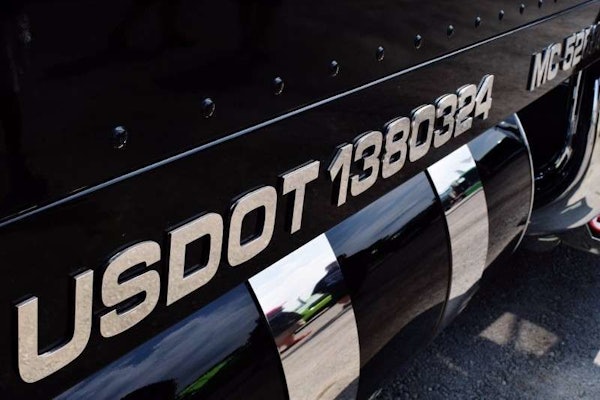The California State Senate passed a bill May 30 that would require drivers to log hours-of-service using onboard recording devices by January 2004. The bill, SB 1048, sponsored by Sen. Jackie Speier, also changes drug-testing rules and tightens CDL medical examination and other requirements. The bill is now being heard on the House side of the Legislature.
The California Trucking Association testified in opposition to the bill, noting that a federal rulemaking on hours of service was pending that included provisions for onboard recorders. CTA argued the state should wait until those rules are adopted. Otherwise, California truckers would have to pay the estimated $500 to $2,500 per truck for the recorders while out-of-state truckers would not. CTA estimates that more than half of the trucks operating in the state are from out of state. California truckers already must purchase California-only diesel fuel, which is running about 40 cents a gallon higher than fuel in neighboring states.
CTA originally supported Speier’s bill, but had to “regrettably oppose” the bill once the onboard recorder provisions were included, according to Warren Hoemann, CTA vice president public affairs.
“SB 1048 did not start out in people’s mind as an onboard recorder bill. That was what was left when the process was done,” Hoemann said, noting the bill went through committee four times.
“Each time, the bill would come back with changes. It was not until the very last point that CTA had to regrettably oppose it. We say regrettably because her intentions were good all along,” he said
According to Hoemann, the original bill – and the part of the current bill CTA supports – was based on an Oregon law that was based on a CTA proposal two years ago. That proposal would establish a database at the department of motor vehicles on truck drivers who tested positive or refused to take a test for drugs or alcohol. Such drivers are medically unqualified to drive a truck under federal rules. The database would allow employers to know which job applicants were medically qualified to drive.
“That’s where the bill started out,” Hoemann said. “But it took on many other aspects in the final version including the onboard recorder mandate and some increased penalties for drivers falsifying their work histories or employers not doing the proper background checks.”
The medical exam part of the bill was in response to an incident in January when trucker Mike Bowers killed himself by ramming his rig into the state Capitol. The crash and resultant fire did about $16 million damage to the building.
Bowers, who had a history of mental illness and criminal convictions, received his CDL physical from a chiropractor. Speier’s bill would originally have prevented chiropractors from doing CDL physical exams, but that provision was dropped after lobbying by the California Chiropractic Association. The bill now allows CDL physicals only by health-care professionals “who are clinically competent to perform the medical examination.”
The Assembly Transportation Committee was expected to take up the bill this summer. Hoemann said CTA was “hard at work right now in the Assembly.”
Several groups support the measure including the California Teamsters Public Affairs Council, the California State Sheriff’s Association, the California Conference of Machinists and Citizens for Reliable and Safe Transportation.






